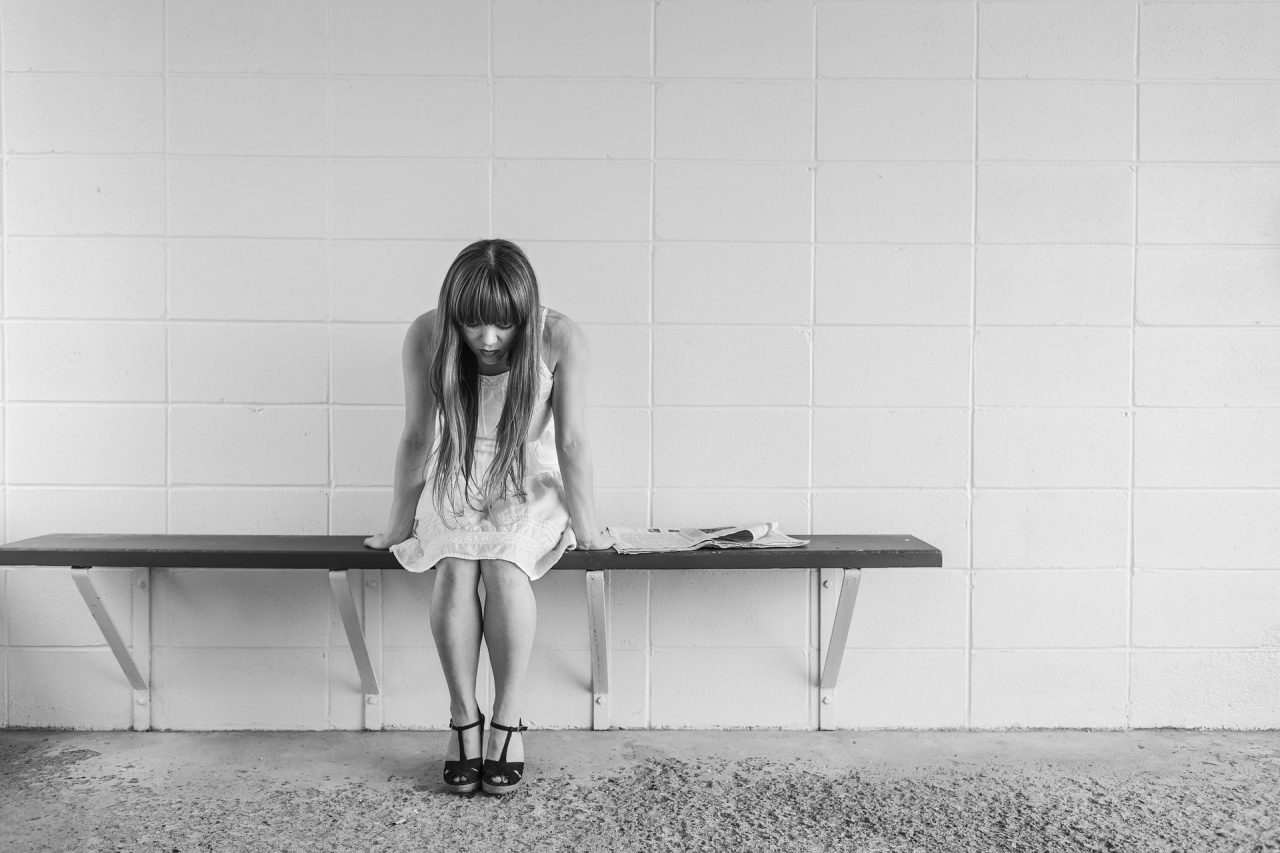Sadness is something we all experience. It is a normal reaction to difficult times in life and usually passes with a little time.
Depression is a Real Illness: When a person has depression, it interferes with daily life and normal functioning. It can cause pain for both the person with depression and those who care about him or her. Doctors call this condition “depressive disorder,” or “clinical depression.” It is a real illness. It is not a sign of a person’s weakness or a character flaw. You can’t “snap out of” clinical depression. Most people who experience depression need treatment to get better.
Signs and Symptoms of Depression
Sadness is only a small part of depression. Some people with depression may not feel sadness at all. Depression has many other symptoms, including physical ones. If you have been experiencing any of the following signs and symptoms for at least 2 weeks, you may be suffering from depression:
- Persistent sad, anxious, or “empty” mood
- Feelings of hopelessness, pessimism
- Feelings of guilt, worthlessness, helplessness
- Loss of interest or pleasure in hobbies and activities
- Decreased energy, fatigue, being “slowed down”
- Difficulty concentrating, remembering, making decisions
- Difficulty sleeping, early-morning awakening, or oversleeping
- Appetite and/or weight changes
- Thoughts of death or suicide, suicide attempts
- Restlessness, irritability
- Persistent physical symptoms
Factors That Play a Role in Depression
Many factors may play a role in depression, including genetics, brain biology and chemistry, and life events such as trauma, loss of a loved one, a difficult relationship, an early childhood experience, or any stressful situation.
Depression can happen at any age, but often begins in the teens or early 20s or 30s. Most chronic mood and anxiety disorders in adults begin as high levels of anxiety in children. In fact, high levels of anxiety as a child could mean a higher risk of depression as an adult.
Depression can co-occur with other serious medical illnesses such as diabetes, cancer, heart disease, and Parkinson’s disease. Depression can make these conditions worse and vice versa. Sometimes medications taken for these illnesses may cause side effects that contribute to depression. A doctor experienced in treating these complicated illnesses can help work out the best treatment strategy.
Research on depression is ongoing, and one day these discoveries may lead to better diagnosis and treatment.
To learn more about current research, visit the NIMH website at www.nimh.nih.gov.
Types of Depression
There are several types of depressive disorders.
Major depression: Severe symptoms that interfere with the ability to work, sleep, study, eat, and enjoy life. An episode can occur only once in a person’s lifetime, but more often, a person has several episodes.
Persistent depressive disorder: A depressed mood that lasts for at least 2 years. A person diagnosed with persistent depressive disorder may have episodes of major depression along with periods of less severe symptoms, but symptoms must last for 2 years.
Some forms of depression are slightly different, or they may develop under unique circumstances. They include:
Psychotic depression, which occurs when a person has severe depression plus some form of psychosis, such as having disturbing false beliefs or a break with reality (delusions), or hearing or seeing upsetting things that others cannot hear or see (hallucinations).
Postpartum depression, which is much more serious than the “baby blues” that many women experience after giving birth, when hormonal and physical changes and the new responsibility of caring for a newborn can be overwhelming. It is estimated that 10 to 15 percent of women experience postpartum depression after giving birth.
Seasonal affective disorder (SAD), which is characterized by the onset of depression during the winter months, when there is less natural sunlight. The depression generally lifts during spring and summer. SAD may be effectively treated with light therapy, but nearly half of those with SAD do not get better with light therapy alone. Antidepressant medication and psychotherapy can reduce SAD symptoms, either alone or in combination with light therapy.
Bipolar disorder is different from depression. The reason it is included in this list is because someone with bipolar disorder experiences episodes of extreme low moods (depression). But a person with bipolar disorder also experiences extreme high moods (called “mania”).
Depression Treatment: Medications and Therapy
Antidepressants are medicines that treat depression. They may help improve the way your brain uses certain chemicals that control mood or stress. You may need to try several different antidepressant medicines before finding the one that improves your symptoms and has manageable side effects. A medication that has helped you or a close family member in the past will often be considered.

Antidepressants take time
Antidepressants take time – usually 2 to 4 weeks – to work, and often, symptoms such as sleep, appetite, and concentration problems improve before mood lifts, so it is important to give medication a chance before reaching a conclusion about its effectiveness. If you begin taking antidepressants, do not stop taking them without the help of a doctor. Sometimes people taking antidepressants feel better and then stop taking the medication on their own, and the depression returns. When you and your doctor have decided it is time to stop the medication, usually after a course of 6 to 12 months, the doctor will help you slowly and safely decrease your dose. Stopping them abruptly can cause withdrawal symptoms.
Please Note: In some cases, children, teenagers, and young adults under 25 may experience an increase in suicidal thoughts or behavior when taking antidepressants, especially in the first few weeks after starting or when the dose is changed. This warning from the U.S. Food and Drug Administration (FDA) also says that patients of all ages taking antidepressants should be watched closely, especially during the first few weeks of treatment.
If you are considering taking an antidepressant and you are pregnant, planning to become pregnant, or breastfeeding, talk to your doctor about any increased health risks to you or your unborn or nursing child.
To find the latest information about antidepressants, talk to your doctor and visit www.fda.gov.
You may have heard about an herbal medicine called St. John’s Wort. Although it is a top-selling botanical product, the FDA has not approved its use as an over-the-counter or prescription medicine for depression, and there are serious concerns about its safety (it should never be combined with a prescription antidepressant) and effectiveness. Do not use St. John’s Wort before talking to your health care provider. Other natural products sold as dietary supplements, including omega-3 fatty acids and S-adenosylmethionine (SAMe), remain under study but have not yet been proven safe and effective for routine use. For more information on herbal and other complementary approaches and current research, please visit the National Center for Complementary and Integrative Health website.
Psychotherapies
Several types of psychotherapy (also called “talk therapy” or, in a less specific form, counseling) can help people with depression. Examples of evidence-based approaches specific to the treatment of depression include cognitive-behavioral therapy (CBT), interpersonal therapy (IPT), and problem-solving therapy. More information on psychotherapy is available on the NIMH website and in the NIMH publication Depression: What You Need to Know.
Beyond Treatment: Things You Can Do
Here are other tips that may help you or a loved one during treatment for depression:
- Try to be active and exercise.
- Set realistic goals for yourself.
- Try to spend time with other people and confide in a trusted friend or relative.
- Try not to isolate yourself, and let others help you.
- Expect your mood to improve gradually, not immediately.
- Postpone important decisions, such as getting married or divorced, or changing jobs until you feel better.
- Discuss decisions with others who know you well and have a more objective view of your situation.
- Continue to educate yourself about depression.
You can learn more about many of these disorders on the NIMH website at www.nimh.nih.gov.
U.S. Department of Health and Human Services, National Institutes of Health, National Institute of Mental Health. (2015). Depression (NIH Publication No. 15-3561). Bethesda, MD: U.S. Government Printing Office.
